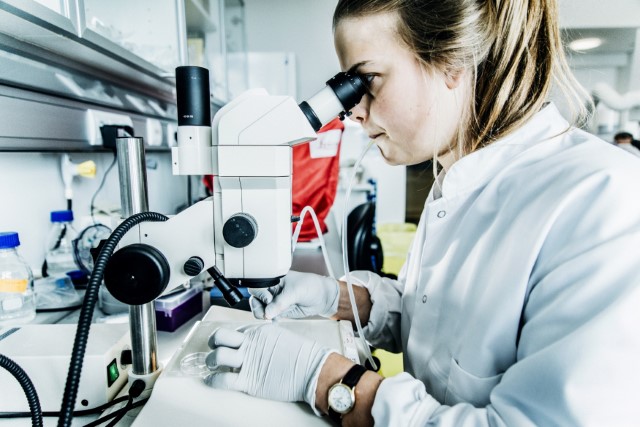The Novo Nordisk Foundation has awarded DKK 78 million for research within clinical and translational research as part of its Research Leader Programme. The Programme aims to ensure that the best research leaders have continuity and stability in their research, giving them the opportunity to pursue ambitious and innovative projects and ideas.
Commonly used painkillers are associated with mild side-effects such as ulcers and increased blood pressure. But do some of these painkillers have the potential to significantly increase the risk of heart attack among people with cardiovascular risk factors such as diabetes, smoking and obesity?
In Europe and North America, each year 700,000 people experience cardiac arrest outside a hospital, and only 10% survive. How can new technology and increased access to automated external defibrillators in society improve this percentage?
Each year, 3000 children in Denmark are born after their parents have been helped to become pregnant through in vitro fertilization. But do people have an increased risk of developing cardiovascular diseases later in life if they start out as a frozen egg in a petri dish?
These are the main questions asked in 3 of 10 ambitious research projects that are receiving grants of close to DKK 10 million each from the Novo Nordisk Foundation. The grants are awarded for clinical and translational research with the overall aim of promoting and strengthening Danish clinical and translational research at a high international level and to stimulate the continued development of excellent clinical research leaders.
The Foundation awards the grants to excellent research leaders in Denmark.
The 5-year grants aim to give the researchers continuity and stability in their research and thereby give them the opportunity to pursue ambitious and innovative projects and ideas, dare to take a different approach and think in new ways. This takes time, but significant new discoveries are often made in these areas.
The grants target research leaders at different stages of their careers, and grants were awarded in each of the following categories:
- Clinical Emerging Investigators. Young promising research leaders wanting to establish or are in the process of establishing their own research group and research profile.
- Borregaard Clinical Ascending Investigators. Talented, established research leaders at the associate professor level.
- Clinical Distinguished Investigators. Professors of the highest international standing and calibre.
The grants are awarded in open competition based on the applications submitted. The Foundation’s Committee on Clinical and Translational Research assessed all 72 applications received.
The 10 grants were awarded as part of the Foundation’s Research Leader Programme. The Programme supports talented research leaders at all stages of their careers and aims to support the continuing development of top researchers. The Foundation just announced that it has awarded a total of DKK 430 million for 44 research leaders under the Programme. Read the news article here.
Grants under the Programme are awarded within four scientific fields: endocrinology and metabolic research; biotechnology-based synthesis and production research; clinical and translational research; and bioscience and basic biomedical research.
The 2019 grants recipients within clinical and translational research are:
Clinical Emerging Investigators

Karen Louise Thomsen, 46, MD, PhD
Host Institution:
Department of Hepatology and Gastroenterology, Aarhus University Hospital
Grant amount: DKK 6,993,900
Project title: Brain dysfunction in non-alcoholic fatty liver disease: Exploring potential mechanisms and treatments
Project description:
Non-alcoholic fatty liver disease (NAFLD) is a common form of chronic liver disease. Up to 70% of patients suffer from brain dysfunction with poor outcome and socio-economic impact. NAFLD animals show brain dysfunction and activation of body-wide inflammation and inflammatory cells in the brain. Fat in the liver impairs the normal conversion of nitrogen into urea, causing buildup of the toxin ammonia. A hormone, GLP-1, which is low in NAFLD patients, helps reduce liver fat and brain inflammation. Moreover, abnormal autonomic nervous system signals in NAFLD may add to brain inflammation. We aim to discover if brain dysfunction in NAFLD arises as a consequence of brain inflammation, and if so, what are the potential mechanisms. We will study this: (i) In NAFLD rats and in patients, to ascertain mechanisms using behavioral tests, examinations of liver and brain tissue, and brain imaging, (ii) Experiments targeting therapy to the putative mechanisms (e.g. GLP-1) in rats and as well as in patients.
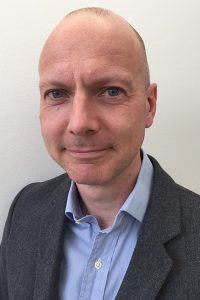
Martin Sillesen, 45, MD, PhD
Host Institution:
Department of Surgical Gastroenterology and Transplantation, Rigshospitalet, University of Copenhagen
Grant amount: DKK 5,920,430
Project title: Towards precision medicine in surgery – An integrative approach combining deep learning, genetics and epigenetics
Project description:
Worldwide, an estimated 234 million surgical procedures are performed each year. While most patients proceed to an uneventful recovery, 15% of procedures are complicated by adverse events (AEs), including strokes, heart attacks, blood clots and wound infections. These directly result in an overall 4% risk of death following surgery worldwide. Aside from the impact on the patient, AEs increase health care costs by up to 172%. Accurate risk prediction is thus pivotal for both the patient and society. With this project, we seek to assess the role of genetics and epigenetics in surgical AEs. Furthermore, we will evaluate whether artificial intelligence can assist in both surgical risk prediction as well as the identification of genetic and epigenetic factors of relevance to surgical outcomes. To do this, we have established an international collaboration with Harvard University and the University of Michigan with the hope of collectively identifying novel factors that can reduce surgical AEs.
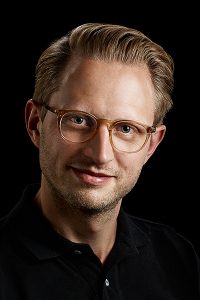
Morten Schmidt, 36, MD, PhD, Associate Professor
Host Institution:
Department of Clinical Epidemiology, Aarhus University Hospital and Departments of Cardiology, Aarhus University Hospital and Regional Hospital West Jutland, Herning
Grant amount: DKK 7,403,725
Project title: Cardiovascular risks associated with non-aspirin NSAID use in patients with established, subclinical, risk factors for, or no cardiovascular disease
Project description: Commonly used painkillers (NSAIDs) are used for the treatment of painful conditions, fever, and inflammation. They are among the most sold medicines in the world but have side effects such as ulcers and increased blood pressure. NSAIDs have now also been linked to heart problems such as heart attack, heart failure, and irregular heartbeat. It is therefore recommended to use NSAIDs with great care in patients with heart disease. This research project will use data from Danish registries to answer important questions on the safety of NSAIDs. It will examine types of NSAIDs not previously looked at and whether warnings from health authorities have influenced doctors’ prescribing of NSAIDs to heart patients. Scientists will also examine whether NSAIDs increase the risk of heart attack in persons with cardiovascular risk factors, such as diabetes, smoking, and obesity. Finally, the project will examine whether NSAID use results in larger heart attacks than in people not using these drugs.
Borregaard Clinical Ascending Investigators

Fredrik Folke, 44, MD, PhD, Associate professor
Host Institution:
Department of Cardiology, Herlev Gentofte Hospital, and Emergency Medical Services, the Capitol Region of Denmark, University of Copenhagen
Grant amount: DKK 9,205,000
Project title: Improving out-of-hospital cardiac arrest survival – a novel and multifaceted approach
Project description:
Out-of-hospital cardiac arrest (OHCA) is a huge health issue affecting over 700,000 people annually in Europe and North America, of which 4000 arrests occurs every year in Denmark. Survival is low around 10%, but more than 50% may survive if defibrillated (shocked) by an automated external defibrillator (AED) within minutes. Despite huge investments in AED deployment less than 4% of all arrests are defibrillated before ambulance arrival. Therefore, new strategies aimed to increase bystander defibrillation are highly desirable. The overall purpose of the research program is to improve out-of-hospital cardiac arrest survival as well as improve neurological intact survival by engaging citizens in early resuscitation. This can be achieved through a multifaceted approach using 1) advanced, artificial intelligence deep learning systems to improve recognition of cardiac arrest during emergency calls; 2) optimal placement and accessibility of AEDs in society using machine learning programs; 3) using new technology to activate volunteer citizens to use AEDs before ambulance arrival through smartphone application systems; 4) testing a strategy of AED deployment combined with activation of local residents in selected residential areas normally not accessible for AED defibrillation; and 5) reaching OHCAs in areas with long ambulance response times and dismal survival chances using an innovative AED drone delivery system.
The nature of the research program is highly translational, meaning that the results can be directly implemented in daily practice leading to improved OHCA survival not only in Denmark, but also internationally.
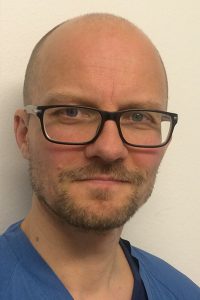
Lars Christian Gormsen, 47, MD, PhD, Associate professor
Host Institution:
Department of Nuclear Medicine and PET Centre, Aarhus University Hospital and Department of Clinical Medicine, Aarhus University
Grant amount: DKK 7,604,060
Project title: Dynamic whole body FDG PET/CT – next generation functional imaging
Project description:
The combination of so called functional and anatomical imaging using PET/CT systems is now an integrated part of disease diagnostics. PET/CT simultaneously visualizes tumor tissue by CT and tissue metabolism by PET using the sugar-like tracer FDG. However, until recently the technique was limited by technical challenges related to the detection of FDG. The introduction of next-generation PET/CT systems may change this. We have acquired such PET/CT systems with better detection of very small structures and the ability to perform so-called dynamic FDG PET/CT. Dynamic PET/CT allows for precise quantification of glucose uptake in the entire body. We will streamline and operationalize acquisition of dynamic PET/CT and will apply the technique to some of the diseases that have thus far proved hard to visualize satisfyingly by conventional PET/CT.
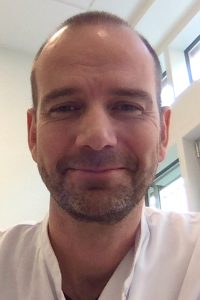
Lars Henning Pedersen, 45, MD, PhD, Clinical Associate Professor, Consultant
Host Institution:
Department of Clinical Medicine, Aarhus University
Grant amount: DKK 7,463,618
Project title: Optimizing Pharmacological Treatment in Obstetrics and during lactatioN (OPTION)
Project description:
More than half of all pregnant or lactating women use medication, but the safety and optimal type of medication in the given situations are often unknown. Unfortunately, most existing knowledge is blind to medications that cause severe malformations or affect foetal growth. There are large gaps in our knowledge on the concentrations that reach the child. Furthermore, information on the effects and safety of medication may take a very long time to reach the primary health care providers. The project will use a unique dataset, that is not blind to medication that causes severe malformations or foetal growth restriction. The dataset will allow us to investigate several medications. Based on international collaborations, we will apply novel approaches to investigate obstetric medications, and we will develop a personalized treatment of depression during pregnancy and lactation. We will use the knowledge and data to develop a dynamic information system that can be used as part of the routine drug information service.
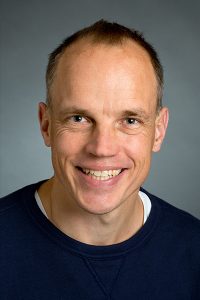
Peter Jepsen, 43, MD, PhD, Associate professor
Host Institution:
Department of Hepatology and Gastroenterology, Aarhus University Hospital.
Grant amount: DKK 9,981,300
Project title: Danish-English Collaboration to Combat Alcoholic liver disease (DECCA)
Project description:
The World Health Organization reports that 6% of all deaths are due to alcohol abuse, primarily from accidents, violence, and alcoholic liver disease (ALD). ALD is the commonest form of liver disease in Western countries including Denmark and England, yet research into ALD is neglected. ALD causes 50% of the liver disease burden but receives only 5% of the research attention. Most deaths among patients with ALD are from complications of cirrhosis of the liver or from primary cancer of the liver (hepatocellular carcinoma). This project will give us new insight into the factors that determine the prognosis for patients who have ALD or are at high risk of developing ALD due to hazardous alcohol consumption. We aim to reduce the burden of ALD on patients and healthcare systems. The knowledge gained from the project should be used to design screening programs for individuals who are at high risk of ALD, and to optimize care for patients diagnosed with ALD.
Clinical Distinguished Investigators
(Billede mangler)
Anders Perner, 54, MD, PhD, Professor
Host Institution:
Department of Intensive Care, Rigshospitalet, University of Copenhagen
Grant amount: DKK 9,707,750
Project title: IMPROVE-ICU – improving intensive care through clinical trials
Project description:
The sickest patients in hospitals are cared for in the intensive care unit (ICU). In the ICU, most patients are treated with advanced life-support. Despite this, many patients die, and the survivors and relatives struggle with reduced quality of life for years. It is therefore a paradox, that many of the treatments we give to ICU patients, have not been tested in such patients. We give these treatments based on tradition and tests in less sick patients. Worryingly, we recently found that some treatments harmed the ICU patients. Therefore, we conduct clinical trials to directly improve the treatment of ICU patients. As a result, more patients survive and we give patients less medicine and less blood and the overall cost has been reduced. With the IMPROVE-ICU program, we will further improve the clinical trials we conduct. This will improve the treatment of blood poisoning, unstable heart rhythm, fluid and blood loss and the way we use blood sampling to the benefit of patients, relatives and society.
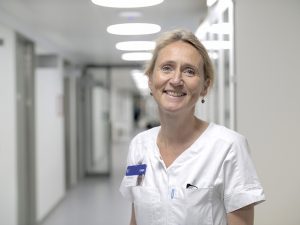
Anja Pinborg, 50, MD, DMSc, Clinical Professor
Host Institution:
Fertility Department, Julianne Marie Centre, Rigshospitalet and University of Copenhagen
Grant amount: DKK 7,033,698
Project title: Health in Childhood following Assisted Reproductive Technology (HiCART)
Project description:
More than 3000 children or 5–6% of the Danish birth cohort are born annually after in-vitro fertilization (IVF) techniques. Frozen embryo transfer (FET) has been increasingly used to avoid twin gestations as a single embryo can be transferred and the surplus embryos frozen. Vitrification, an ultra-fast freezing method, has improved the survival of frozen embryos from < 50% with the slow-freeze method to > 95%. However, singletons born after FET have a higher risk of being born larger than others at same age, which may increase their risk of diabetes and cardiovascular disease. In this project we will examine BMI, metabolism, endocrine and cardiovascular parameters and their genome control mechanisms (epigenetic modification) in 600 singletons aged 6 to 8-years born after A. FET; B. Fresh embryo transfer; and C. Natural conception. This study is the first of its kind worldwide and will have wide implications for the IVF treatment strategies in the future (www.HiCART.dk).
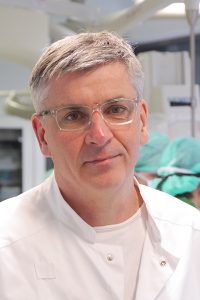
Lars Søndergaard, 58, MD, MDSc, Professor
Host Institution:
Department of Cardiology, Rigshospitalet and Institute of Clinical Medicine, University of Copenhagen
Grant amount: DKK 7,000,000
Project title: Prospective study on the impact of different anti-thrombotic therapies on prevalence of subclinical leaflet thrombosis in transcatheter aortic valves.
Project description:
During the last decade, treatment of aortic valve stenosis using transcatheter aortic valve implantation (TAVI) has been established and is now proven to be at least as good as the traditional surgical treatment in elderly patients and in patients with other diseases besides their cardiac problem. This study, the NOTION-4 trial, is a Nordic collaboration to test the optimal blood thinning treatment strategy after patients have received a transcatheter heart valve. Two medical regimens will be tested in patients with stable heart rhythm (sinus rhythm). In patients with unstable rhythm (atrial fibrillation), who require stronger blood thinning, the effectiveness of implantation of a plug in the heart chamber where most blood clots origin, is tested, with the purpose of reducing the amount of blood thinning and thereby reduce the risk of bleedings and other important side effects. The trial uses the technique of randomization – the preferred scientific technique when testing different treatment strategies.
About the Novo Nordisk Foundation
The Novo Nordisk Foundation is an independent Danish foundation with corporate interests. It has two objectives: 1) to provide a stable basis for the commercial and research activities of the companies in the Novo Group; and 2) to support scientific, humanitarian and social causes.
The vision of the Foundation is to contribute significantly to research and development that improves the lives of people and the sustainability of society. Since 2010, the Foundation has donated more than DKK 20 billion (€2.7 billion), primarily for research at public institutions and hospitals in Denmark and the other Nordic countries. Read more at www.novonordiskfonden.dk/en
Further information
Kristian Winge, Senior Scientific Officer, Biomed, kwi@novo.dk
Christian Mostrup Scheel, Senior Press Officer, phone: +45 3067 4805, cims@novo.dk

